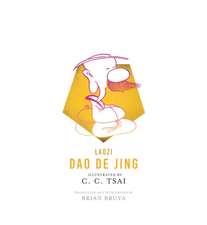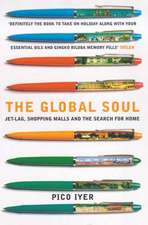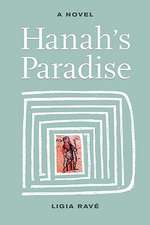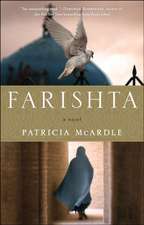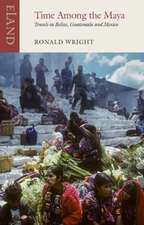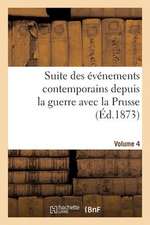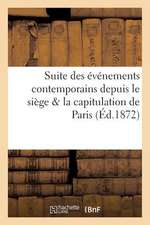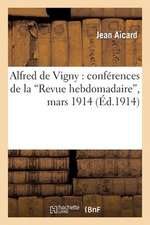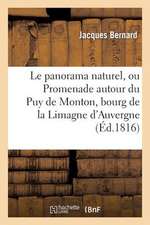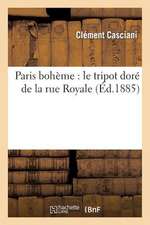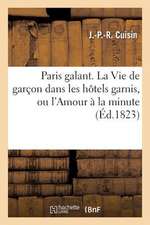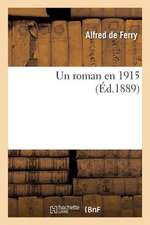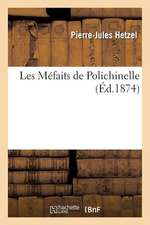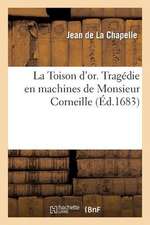Abandon: Vintage Contemporaries
Autor Pico Iyeren Limba Engleză Paperback – 31 mar 2004
John Macmillan, a classically reticent Englishman who has moved to California to study the poems of the Sufi mystic Rumi, unexpectedly becomes involved in two equally absorbing quests. The first is for a mysterious Rumi manuscript that may have been smuggled out of Iran; the second for the elusive Camilla Jensen, who continually offers herself to him only to repeatedly slip from his grasp. Are these quests somehow related? And can Macmillan give himself over to them without losing his career and identity?
Moving deftly from California academia to the mosques of Iran, filled with insights into the minds of Islam and the modern West, Abandon is a magic carpet-ride of a book.
Din seria Vintage Contemporaries
-
 Preț: 109.95 lei
Preț: 109.95 lei -
 Preț: 101.80 lei
Preț: 101.80 lei -
 Preț: 125.21 lei
Preț: 125.21 lei -
 Preț: 107.46 lei
Preț: 107.46 lei -
 Preț: 105.38 lei
Preț: 105.38 lei -
 Preț: 119.87 lei
Preț: 119.87 lei -
 Preț: 111.51 lei
Preț: 111.51 lei -
 Preț: 96.11 lei
Preț: 96.11 lei -
 Preț: 99.75 lei
Preț: 99.75 lei -
 Preț: 96.52 lei
Preț: 96.52 lei -
 Preț: 111.92 lei
Preț: 111.92 lei -
 Preț: 117.87 lei
Preț: 117.87 lei -
 Preț: 95.92 lei
Preț: 95.92 lei -
 Preț: 113.56 lei
Preț: 113.56 lei -
 Preț: 100.35 lei
Preț: 100.35 lei -
 Preț: 108.09 lei
Preț: 108.09 lei -
 Preț: 115.42 lei
Preț: 115.42 lei -
 Preț: 106.04 lei
Preț: 106.04 lei -
 Preț: 91.77 lei
Preț: 91.77 lei -
 Preț: 90.64 lei
Preț: 90.64 lei -
 Preț: 96.93 lei
Preț: 96.93 lei -
 Preț: 99.60 lei
Preț: 99.60 lei -
 Preț: 87.84 lei
Preț: 87.84 lei -
 Preț: 99.30 lei
Preț: 99.30 lei -
 Preț: 120.26 lei
Preț: 120.26 lei -
 Preț: 103.74 lei
Preț: 103.74 lei -
 Preț: 100.98 lei
Preț: 100.98 lei -
 Preț: 100.76 lei
Preț: 100.76 lei -
 Preț: 89.09 lei
Preț: 89.09 lei -
 Preț: 115.94 lei
Preț: 115.94 lei -
 Preț: 101.24 lei
Preț: 101.24 lei -
 Preț: 125.13 lei
Preț: 125.13 lei -
 Preț: 89.50 lei
Preț: 89.50 lei -
 Preț: 101.88 lei
Preț: 101.88 lei -
 Preț: 139.63 lei
Preț: 139.63 lei -
 Preț: 93.85 lei
Preț: 93.85 lei -
 Preț: 106.45 lei
Preț: 106.45 lei -
 Preț: 89.91 lei
Preț: 89.91 lei -
 Preț: 77.02 lei
Preț: 77.02 lei -
 Preț: 111.76 lei
Preț: 111.76 lei -
 Preț: 132.88 lei
Preț: 132.88 lei -
 Preț: 112.11 lei
Preț: 112.11 lei -
 Preț: 83.94 lei
Preț: 83.94 lei -
 Preț: 105.82 lei
Preț: 105.82 lei -
 Preț: 88.62 lei
Preț: 88.62 lei -
 Preț: 105.41 lei
Preț: 105.41 lei -
 Preț: 97.34 lei
Preț: 97.34 lei -
 Preț: 129.78 lei
Preț: 129.78 lei -
 Preț: 100.57 lei
Preț: 100.57 lei
Preț: 107.92 lei
Nou
Puncte Express: 162
Preț estimativ în valută:
20.66€ • 22.45$ • 17.36£
20.66€ • 22.45$ • 17.36£
Carte disponibilă
Livrare economică 01-15 aprilie
Preluare comenzi: 021 569.72.76
Specificații
ISBN-13: 9781400030859
ISBN-10: 1400030854
Pagini: 353
Dimensiuni: 134 x 202 x 21 mm
Greutate: 0.26 kg
Editura: VINTAGE BOOKS
Seria Vintage Contemporaries
ISBN-10: 1400030854
Pagini: 353
Dimensiuni: 134 x 202 x 21 mm
Greutate: 0.26 kg
Editura: VINTAGE BOOKS
Seria Vintage Contemporaries
Notă biografică
Pico Iyer is the author of several books about the romance between cultures, including Video Night in Kathmandu, The Lady and the Monk, Cuba and the Night and, most recently, The Global Soul. He lives in suburban Japan.
Extras
He reached for his alarm clock in the dark, and then realized that the sound was coming from somewhere else. All across the city the long, slow, heart-torn cry of love—“La ilaha illa ’Llah” (There is no god but God)—rose up, as if from a widow in her grief alone. Pulling back the curtains, he saw the high-rises with their rickety antennae in the brownish light, pictures of Assad the size of six-story buildings, green-lit minarets standing sentinel across the town. Nearby, on the hill, a scatter of lights, and then the desert began.
He went down, as was now his custom, to the lobby—two women slumped enigmatically in chairs—and saw a pair of taxis idling under the line of trees. He walked up to the first, tapped at the window, and the man, startled from his sleep, reached back a lazy arm to open the door. Then they drove through the hushed, still-darkened streets to where the suq began, inside what looked to be a Crusader castle.
Even now the smell of cardamom and spices, as if, he always thought, he were walking into a curry. The store where they’d shown him a manuscript, two days before, that came, they said, from Isfahan; the other stall, where the owner, it was rumored, was a member of the secret orders. Everywhere, thin alleyways trailing off into silence, and then, five minutes later, out again into the faint light to see a few huddled figures slipping into the great mosque through its northern entrance. He followed them in, and a huge flock of pigeons took sudden flight, lit up against the blue-black sky, and settled around the minarets like guards.
Inside the prayer hall, everything was hushed. But everywhere, across the red-carpeted space, was a sense of murmurous chant, as if the building itself were muttering prayers under its breath. Mullahs sat here and there, thirty or forty before them, and delivered soft talks on the faithful’s duties. A woman sat on a raised platform at the center of the hall, reading her Quran while her son banged his legs impatiently on the step. Under the great dome, tall students from the desert countries paced back and forth, reciting their holy verses in a quiet singsong.
He’d been told that someone might approach him here, in the safety of the sacred place at dawn. No one knew who the Sufis were, of course—not even their partners or their children—but if anyone were to make contact, his adviser had told him, it would most likely be here, under cover, as it were. He watched a gang of elders walk across the carpets, clapping rough hands on familiar shoulders, telling their beads. Not far away, a young man was sitting in front of a mihrab, so motionless and alone it looked as if he had taken flight himself, and lost himself in the silence all around.
The visitor watched and watched, but no one showed any sign of acknowledging him. Defeated, he got up and slipped out, through the southern entrance this time, into the riddle of lanes that snake around the Old City, this way and that, like a theological argument. Passageways so narrow that opposing houses seem to touch on their second floors; alleyways that lead to alleyways, and then under archways too low for a man to walk through without bowing. Colorful checkerboard doors in the low walls, and, now and then, in the distance, the outline of a fruit tree, a minaret.
The streets were always deserted at this hour, no sound to keep him company but the fall of his own footsteps. Following a dusty alleyway—a woman in black emerged from a door, and looked at him—he turned a corner, and found himself amidst a blaze of lights and stalls and shouts: children running under carts, men calling out prices, a press of women, all in black, pushing their way across a marble floor into a courtyard guarded by a golden dome. He followed them in—the marble cold on his bare feet—and stepped into Iran. Ten years before, after Khomeini’s triumph, his followers had built two mosques here in Damascus, white and gold and blue, to house two Shia saints.
Across the marble space there was a small door, and when he went through it he found himself inside a space as hectic and overlit as a casino in the desert. Like walking into a kaleidoscope as it was being shaken, the low chandeliers, the tilework and glinting mirrors, the pieces of colored glass in the windows throwing off an ecstasy of reflections. Everywhere, people were sitting or standing, tears streaming down their faces, or hunched over (even the roughest men) as if they’d lost everything they cared for in the world.
Grown men came up to other men, and patted them on the shoulder, then began to cry, to cry again. Younger men, in light black jackets, as if they’d just stepped out of a restaurant in Los Angeles, sobbed and sobbed, wiping away their tears and then collapsing once again. Around the grille of the shrine, where the great-granddaughter of the Prophet lay, women were running their fingers along the bars and then running the same fingers along their faces, as if to pass on the sympathetic magic. Men sat with heads buried in their hands, and at the center of a great group on the floor, fifty or sixty perhaps, a young man, lightly bearded, with an elegant rosy face—the kind of man you might expect to see emerging from a nightclub—was singing, in a beautiful, high, and quavering voice, as if he’d lost his sweetheart yesterday.
The scholar’s habit is to take down everything as it happens, before the moment flies away. But this time, the weeping men bent over beside him, the women running their frenzied hands along the bars, as if to pull back a two-year-old now thirteen hundred years dead, the young couples reading from their Qurans, he reached for his notebook, and held back. A few hours later, the people around him would be merchants and housewives and butchers once again; now, for a few moments, they could let their real selves out.
As soon as the sun was fully up, he returned to his hotel room and packed his few things in his case. He’d hoped Khalil would call him in response to his letter, but the long days had passed and his small room had remained silent. Now, with only a few hours before his departure, he realized he would have to take the initiative himself.
The phone didn’t work, of course, and in any case he remembered what Sefadhi had told him about the old professor’s need for privacy. Since Fatima had died, the rumor had it, he scarcely left his apartment, and stayed inside the circle of his books like a medieval hermit. Besides, a scholar of Sufi poets must always be circumspect in Assad’s Damascus. “Go and visit him one day on a whim,” his adviser had said. “Make nothing of it; don’t even make a plan. If you don’t know when you’re going, they can’t, either.”
He went out into the street, the sun already high and hot, and walked around the square, stopping in at the bookshop, and looking around the lounge of the Umayyad Hotel, as for a friend. Then, consulting a map he didn’t need, he walked deliberately in the wrong direction, doubled back, and then crossed over into one of the quieter streets, all doctors’ signs and dusty Plymouths. Scanning the map, as if a lost tourist, he walked past the house he had scouted out before. Then, as if suddenly struck by a question, he went back and walked up to the door and rang the bell.
The professor opened up a few seconds later—he moved slowly, but clearly there was not much space to move through—and the visitor said quickly, “Professor Sefadhi,” and was ushered in. In the low, dark hall the man looked him over to see what he had brought in, dust clinging to his own dark clothes, as he patted his thinning white hair.
“John Macmillan,” he said, extending a hand. “I hope you got my letter.”
“Of course,” said the man, inclining his head a little, but not returning the handshake. “Come.” And led him through the corri- dor into a small room which obviously hadn’t been cleaned in a very long time. Now and then, he had heard, Khalil visited his daughter and son-in-law in a distant quarter of the city; otherwise he stayed at home alone with his research. There were three black-and-white photographs in silver frames beside a cabinet. Where another man might have kept bottles, he kept books.
“Professor Sefadhi told me that if I was in Damascus I should come and see you,” he said, feeling he’d said this already, but needing somehow to fill the silence. The old man, without a word, disappeared into a tiny kitchen and returned a few minutes later with two glasses of tea and a sad-looking plate of biscuits.
“You’re old friends, he told me.”
“Yes,” said the man. “We have known each other many years.”
A silence fell again, and the man showed no signs of responding to it. “Professor Sefadhi said, actually, you might be able to help me with the poets I’m working on. It’s an honor to meet you, after reading you for so long.”
This was the local form, he knew, but the man seemed indifferent to it.
“You study with Javad now? In Santa Monica?”
“Barbara, yes. I learned Farsi at SOAS under Professor Willingdon and then—well, I moved to California to study with Professor Sefadhi.”
“I see,” said the man, who looked as if he was waiting to be back with his books. “And Javad, he is well?”
“Very well. He has quite a following in Santa Barbara. They say he may get a chair.”
“Of course,” said Khalil, as if this were news from another planet, and he knew it in any case. “Javad has always had friends.”
It was hard to know what exactly lay behind the comment, so he returned to his theme as before. “He said, actually, you might have some suggestions about where I could go for more information. I’m working on the Sufis—lesser-known works of Rumi—and he said you might know of resources not widely available in the West.”
“The Shiraz Manuscript, you’re speaking of?” said the man, sharply, quickly, as if they were haggling over something in the suq. “We are the last to know about that.”
“The ‘Shiraz Manuscript’?” The term was new to him. “That would be . . .”
“Nothing,” said Khalil. “Rumors. In Tehran you will hear one hundred people tell you that the Imam is alive and in hiding. And two hundred people will tell you that the Shah is coming back. It’s only rumors.”
“But it was one of the manuscripts that came out in ’79?”
“Whispers,” said the man, as if to brush off a persistent fly. “To keep the people busy while they wait for the Twelfth Imam. You are studying Hafez, Saadi in Santa Monica?”
“Barbara, yes. All of them. But my main interest is . . .”
“You know Kristina Jensen? A friend of mine.”
A friend of a Syrian professor in Santa Barbara? He’d been told to keep on alert around Khalil—“He knows how to play poker even if he isn’t holding any cards,” Sefadhi had said. “Life’s not easy in Damascus”—but already he felt that the conversation was being taken away from him.
“I don’t think so. She lives in Santa Barbara?”
“Yes. California. I met her at the Islamic Symposium in Oslo, four years ago. You can take a small gift for her?”
“Of course.” It was all happening so quickly, as he’d been warned it would; he’d come here in search of information and now, somehow, he was being used as a courier for the old man, taking who knows what around the world.
He was in no position to say no, though, and already the professor was in the next room, loudly rummaging through what the visitor assumed to be boxes and old papers. Looking around him in the small room, he saw nothing but loneliness and devotion: the biscuits spoke of how few people ever came here, and the black-and-white photographs in the frames had not been dusted for a long time. Above them, on the wall, much larger, was a whole array of photographs of President Assad and his two sons.
“Here, this only,” said the man, coming back into the room with a small package the shape of a box, wrapped in a page of the previous day’s Al Baath.
“You have her address?”
“Address?” said the man, looking suddenly put out. “No. No address. But her telephone number is 00-1-805-964-3271. Please call her and you can find the address. She is close to Javad, I think.” Socially? Geographically? The man claimed only to have met her at a conference, and yet he knew her phone number by heart? “Go into the field,” Mowbray had told him years before, “and you’ll find yourself moving from darkness into deeper darkness.”
“She probably knows Professor Sefadhi?” he tried. “If she’s interested in Islam.”
“Perhaps,” said Khalil, but now that his chore had been taken care of, he seemed to have lost all interest in their talk. He placed his small hands on his large thighs as if to suggest that the interview was over.
“You don’t know anything about Rumi that might be helpful to my project, then?”
“A great poet,” said the man, in what might have been his public voice. “Even we do not know all that he has written.”
The “we” was a way of putting him in his place—reminding him he was a trespasser here—and he realized he would get nothing more from the old man.
He followed him down the unlit corridor, and when his host pulled open the door, he heard, “My regards to Javad, please. And Miss Jensen. A safe trip to Santa Monica.”
“Barbara,” he said.
“Of course,” and the door closed in his face.
That night he couldn’t get to sleep—the way, if someone just mentions a name she thinks you know, you search and search until you lose all focus. When, after what felt like hours, he fell away at last, he was in a desert somewhere, a dusty and abandoned place, and Martine was by his side, though it didn’t look like her. She was working on a puzzle of some kind, and then an alarm went off, and there were voices, lights, a man who looked like Khalil walking past.
“There’s just room for one more letter,” she was saying.
He woke up and realized he’d had the answer to whatever it was she was looking for, but hadn’t managed to bring it out in time. Strange tears were pricking at his eyes.
By the time he got to London, and Nigel and Arabella’s house, he was still feeling displaced somehow, as if the love song in the airport taxi in Damascus, slow and plangent, was still going through him in some way. He made up an excuse, said he had to do something before he came back for dinner, and Nigel looked at him strangely, more than ever convinced, no doubt, that California was robbing him of his reason. But there was nothing his friend could say to stop him, and soon he was out again, in the streets, joining the crowds as they pushed towards the river. The center of London was always jam-packed in the summer, every language audible but English, and as he made his way to Westminster—not at all where he’d expected to be going—he felt like a foreigner at home. The light was just beginning to fade as he slipped into the back of the great drafty space.
The choristers were taking their places in their stalls as he sat down, surpliced and translated out of their schoolboy selves; the red lamps above the scores in front of them threw a strange and ancient light up into their faces. Outside, it was getting dark—he could tell by the smudged light through the stained-glass windows—and as he sat on a bare pew in the back, suddenly the young voices began to rise up around him, high and unfallen, as if angels were summoning every creature to their presence. The voices rose and echoed through the huge space as if to pull the whole building up into the air, and for a moment he thought back, for no reason he could fathom, to the great mosque in Damascus, the men on the floor, their hands upturned on either side of them.
Do with me what you will, their cupped palms said. I am nothing; you are all.
When the hymn was over, a somewhat older boy went up to a lectern and practiced the lesson, and then the choirmaster led them all in a small, massed chanting of the Lord’s Prayer—“Adveniat regnum tuum. Fiat voluntas tua sicut in cœlo et in terra”—before letting the sweet unbroken voices rise again, sanctifying everything before them, and making it clean.
“There’s something different about you,” Nigel said after dinner, as they started clearing away the dishes. “Something strange. I can’t put my finger on it, but, I don’t know, you’re different.”
“It must be California.”
“Must be,” said his friend, who didn’t sound delighted by the change. “You seem more serious in a way. More—how can I put it?—hungry.”
“It doesn’t sound like a good thing, the way you put it.”
“Probably isn’t, no. Are you going to call Martine while you’re here?” He slipped it in so casually, it was clearly what he’d been leading up to all along.
“I think she’s probably glad of a break from me.”
“Yes. That part hasn’t changed.” And Nigel was off again, to collect the salt and pepper shakers, while he went on with the drying. When he went out, the rites complete, his friend said, “Sleep well. If we don’t see you in the morning, give us a call sometime when you’re back home.”
In the morning, however, they were both waiting for him in the kitchen, bleary over mugs of Nescafé, and Nigel left him with “Don’t lose your sense of humor, will you?”
“I don’t think I can, if I’m studying religion.”
“No, suppose you’re right. Anyway, it’s good to see you, even if you do seem half mad.”
At the airport, in the departure lounge, he picked up a receiver and put in his card, then held the instrument in place and put it down again. Whatever he said at this point could only come out wrong: if he sounded happy, if he sounded bereft—all of it could only be an insult.
He went down, as was now his custom, to the lobby—two women slumped enigmatically in chairs—and saw a pair of taxis idling under the line of trees. He walked up to the first, tapped at the window, and the man, startled from his sleep, reached back a lazy arm to open the door. Then they drove through the hushed, still-darkened streets to where the suq began, inside what looked to be a Crusader castle.
Even now the smell of cardamom and spices, as if, he always thought, he were walking into a curry. The store where they’d shown him a manuscript, two days before, that came, they said, from Isfahan; the other stall, where the owner, it was rumored, was a member of the secret orders. Everywhere, thin alleyways trailing off into silence, and then, five minutes later, out again into the faint light to see a few huddled figures slipping into the great mosque through its northern entrance. He followed them in, and a huge flock of pigeons took sudden flight, lit up against the blue-black sky, and settled around the minarets like guards.
Inside the prayer hall, everything was hushed. But everywhere, across the red-carpeted space, was a sense of murmurous chant, as if the building itself were muttering prayers under its breath. Mullahs sat here and there, thirty or forty before them, and delivered soft talks on the faithful’s duties. A woman sat on a raised platform at the center of the hall, reading her Quran while her son banged his legs impatiently on the step. Under the great dome, tall students from the desert countries paced back and forth, reciting their holy verses in a quiet singsong.
He’d been told that someone might approach him here, in the safety of the sacred place at dawn. No one knew who the Sufis were, of course—not even their partners or their children—but if anyone were to make contact, his adviser had told him, it would most likely be here, under cover, as it were. He watched a gang of elders walk across the carpets, clapping rough hands on familiar shoulders, telling their beads. Not far away, a young man was sitting in front of a mihrab, so motionless and alone it looked as if he had taken flight himself, and lost himself in the silence all around.
The visitor watched and watched, but no one showed any sign of acknowledging him. Defeated, he got up and slipped out, through the southern entrance this time, into the riddle of lanes that snake around the Old City, this way and that, like a theological argument. Passageways so narrow that opposing houses seem to touch on their second floors; alleyways that lead to alleyways, and then under archways too low for a man to walk through without bowing. Colorful checkerboard doors in the low walls, and, now and then, in the distance, the outline of a fruit tree, a minaret.
The streets were always deserted at this hour, no sound to keep him company but the fall of his own footsteps. Following a dusty alleyway—a woman in black emerged from a door, and looked at him—he turned a corner, and found himself amidst a blaze of lights and stalls and shouts: children running under carts, men calling out prices, a press of women, all in black, pushing their way across a marble floor into a courtyard guarded by a golden dome. He followed them in—the marble cold on his bare feet—and stepped into Iran. Ten years before, after Khomeini’s triumph, his followers had built two mosques here in Damascus, white and gold and blue, to house two Shia saints.
Across the marble space there was a small door, and when he went through it he found himself inside a space as hectic and overlit as a casino in the desert. Like walking into a kaleidoscope as it was being shaken, the low chandeliers, the tilework and glinting mirrors, the pieces of colored glass in the windows throwing off an ecstasy of reflections. Everywhere, people were sitting or standing, tears streaming down their faces, or hunched over (even the roughest men) as if they’d lost everything they cared for in the world.
Grown men came up to other men, and patted them on the shoulder, then began to cry, to cry again. Younger men, in light black jackets, as if they’d just stepped out of a restaurant in Los Angeles, sobbed and sobbed, wiping away their tears and then collapsing once again. Around the grille of the shrine, where the great-granddaughter of the Prophet lay, women were running their fingers along the bars and then running the same fingers along their faces, as if to pass on the sympathetic magic. Men sat with heads buried in their hands, and at the center of a great group on the floor, fifty or sixty perhaps, a young man, lightly bearded, with an elegant rosy face—the kind of man you might expect to see emerging from a nightclub—was singing, in a beautiful, high, and quavering voice, as if he’d lost his sweetheart yesterday.
The scholar’s habit is to take down everything as it happens, before the moment flies away. But this time, the weeping men bent over beside him, the women running their frenzied hands along the bars, as if to pull back a two-year-old now thirteen hundred years dead, the young couples reading from their Qurans, he reached for his notebook, and held back. A few hours later, the people around him would be merchants and housewives and butchers once again; now, for a few moments, they could let their real selves out.
As soon as the sun was fully up, he returned to his hotel room and packed his few things in his case. He’d hoped Khalil would call him in response to his letter, but the long days had passed and his small room had remained silent. Now, with only a few hours before his departure, he realized he would have to take the initiative himself.
The phone didn’t work, of course, and in any case he remembered what Sefadhi had told him about the old professor’s need for privacy. Since Fatima had died, the rumor had it, he scarcely left his apartment, and stayed inside the circle of his books like a medieval hermit. Besides, a scholar of Sufi poets must always be circumspect in Assad’s Damascus. “Go and visit him one day on a whim,” his adviser had said. “Make nothing of it; don’t even make a plan. If you don’t know when you’re going, they can’t, either.”
He went out into the street, the sun already high and hot, and walked around the square, stopping in at the bookshop, and looking around the lounge of the Umayyad Hotel, as for a friend. Then, consulting a map he didn’t need, he walked deliberately in the wrong direction, doubled back, and then crossed over into one of the quieter streets, all doctors’ signs and dusty Plymouths. Scanning the map, as if a lost tourist, he walked past the house he had scouted out before. Then, as if suddenly struck by a question, he went back and walked up to the door and rang the bell.
The professor opened up a few seconds later—he moved slowly, but clearly there was not much space to move through—and the visitor said quickly, “Professor Sefadhi,” and was ushered in. In the low, dark hall the man looked him over to see what he had brought in, dust clinging to his own dark clothes, as he patted his thinning white hair.
“John Macmillan,” he said, extending a hand. “I hope you got my letter.”
“Of course,” said the man, inclining his head a little, but not returning the handshake. “Come.” And led him through the corri- dor into a small room which obviously hadn’t been cleaned in a very long time. Now and then, he had heard, Khalil visited his daughter and son-in-law in a distant quarter of the city; otherwise he stayed at home alone with his research. There were three black-and-white photographs in silver frames beside a cabinet. Where another man might have kept bottles, he kept books.
“Professor Sefadhi told me that if I was in Damascus I should come and see you,” he said, feeling he’d said this already, but needing somehow to fill the silence. The old man, without a word, disappeared into a tiny kitchen and returned a few minutes later with two glasses of tea and a sad-looking plate of biscuits.
“You’re old friends, he told me.”
“Yes,” said the man. “We have known each other many years.”
A silence fell again, and the man showed no signs of responding to it. “Professor Sefadhi said, actually, you might be able to help me with the poets I’m working on. It’s an honor to meet you, after reading you for so long.”
This was the local form, he knew, but the man seemed indifferent to it.
“You study with Javad now? In Santa Monica?”
“Barbara, yes. I learned Farsi at SOAS under Professor Willingdon and then—well, I moved to California to study with Professor Sefadhi.”
“I see,” said the man, who looked as if he was waiting to be back with his books. “And Javad, he is well?”
“Very well. He has quite a following in Santa Barbara. They say he may get a chair.”
“Of course,” said Khalil, as if this were news from another planet, and he knew it in any case. “Javad has always had friends.”
It was hard to know what exactly lay behind the comment, so he returned to his theme as before. “He said, actually, you might have some suggestions about where I could go for more information. I’m working on the Sufis—lesser-known works of Rumi—and he said you might know of resources not widely available in the West.”
“The Shiraz Manuscript, you’re speaking of?” said the man, sharply, quickly, as if they were haggling over something in the suq. “We are the last to know about that.”
“The ‘Shiraz Manuscript’?” The term was new to him. “That would be . . .”
“Nothing,” said Khalil. “Rumors. In Tehran you will hear one hundred people tell you that the Imam is alive and in hiding. And two hundred people will tell you that the Shah is coming back. It’s only rumors.”
“But it was one of the manuscripts that came out in ’79?”
“Whispers,” said the man, as if to brush off a persistent fly. “To keep the people busy while they wait for the Twelfth Imam. You are studying Hafez, Saadi in Santa Monica?”
“Barbara, yes. All of them. But my main interest is . . .”
“You know Kristina Jensen? A friend of mine.”
A friend of a Syrian professor in Santa Barbara? He’d been told to keep on alert around Khalil—“He knows how to play poker even if he isn’t holding any cards,” Sefadhi had said. “Life’s not easy in Damascus”—but already he felt that the conversation was being taken away from him.
“I don’t think so. She lives in Santa Barbara?”
“Yes. California. I met her at the Islamic Symposium in Oslo, four years ago. You can take a small gift for her?”
“Of course.” It was all happening so quickly, as he’d been warned it would; he’d come here in search of information and now, somehow, he was being used as a courier for the old man, taking who knows what around the world.
He was in no position to say no, though, and already the professor was in the next room, loudly rummaging through what the visitor assumed to be boxes and old papers. Looking around him in the small room, he saw nothing but loneliness and devotion: the biscuits spoke of how few people ever came here, and the black-and-white photographs in the frames had not been dusted for a long time. Above them, on the wall, much larger, was a whole array of photographs of President Assad and his two sons.
“Here, this only,” said the man, coming back into the room with a small package the shape of a box, wrapped in a page of the previous day’s Al Baath.
“You have her address?”
“Address?” said the man, looking suddenly put out. “No. No address. But her telephone number is 00-1-805-964-3271. Please call her and you can find the address. She is close to Javad, I think.” Socially? Geographically? The man claimed only to have met her at a conference, and yet he knew her phone number by heart? “Go into the field,” Mowbray had told him years before, “and you’ll find yourself moving from darkness into deeper darkness.”
“She probably knows Professor Sefadhi?” he tried. “If she’s interested in Islam.”
“Perhaps,” said Khalil, but now that his chore had been taken care of, he seemed to have lost all interest in their talk. He placed his small hands on his large thighs as if to suggest that the interview was over.
“You don’t know anything about Rumi that might be helpful to my project, then?”
“A great poet,” said the man, in what might have been his public voice. “Even we do not know all that he has written.”
The “we” was a way of putting him in his place—reminding him he was a trespasser here—and he realized he would get nothing more from the old man.
He followed him down the unlit corridor, and when his host pulled open the door, he heard, “My regards to Javad, please. And Miss Jensen. A safe trip to Santa Monica.”
“Barbara,” he said.
“Of course,” and the door closed in his face.
That night he couldn’t get to sleep—the way, if someone just mentions a name she thinks you know, you search and search until you lose all focus. When, after what felt like hours, he fell away at last, he was in a desert somewhere, a dusty and abandoned place, and Martine was by his side, though it didn’t look like her. She was working on a puzzle of some kind, and then an alarm went off, and there were voices, lights, a man who looked like Khalil walking past.
“There’s just room for one more letter,” she was saying.
He woke up and realized he’d had the answer to whatever it was she was looking for, but hadn’t managed to bring it out in time. Strange tears were pricking at his eyes.
By the time he got to London, and Nigel and Arabella’s house, he was still feeling displaced somehow, as if the love song in the airport taxi in Damascus, slow and plangent, was still going through him in some way. He made up an excuse, said he had to do something before he came back for dinner, and Nigel looked at him strangely, more than ever convinced, no doubt, that California was robbing him of his reason. But there was nothing his friend could say to stop him, and soon he was out again, in the streets, joining the crowds as they pushed towards the river. The center of London was always jam-packed in the summer, every language audible but English, and as he made his way to Westminster—not at all where he’d expected to be going—he felt like a foreigner at home. The light was just beginning to fade as he slipped into the back of the great drafty space.
The choristers were taking their places in their stalls as he sat down, surpliced and translated out of their schoolboy selves; the red lamps above the scores in front of them threw a strange and ancient light up into their faces. Outside, it was getting dark—he could tell by the smudged light through the stained-glass windows—and as he sat on a bare pew in the back, suddenly the young voices began to rise up around him, high and unfallen, as if angels were summoning every creature to their presence. The voices rose and echoed through the huge space as if to pull the whole building up into the air, and for a moment he thought back, for no reason he could fathom, to the great mosque in Damascus, the men on the floor, their hands upturned on either side of them.
Do with me what you will, their cupped palms said. I am nothing; you are all.
When the hymn was over, a somewhat older boy went up to a lectern and practiced the lesson, and then the choirmaster led them all in a small, massed chanting of the Lord’s Prayer—“Adveniat regnum tuum. Fiat voluntas tua sicut in cœlo et in terra”—before letting the sweet unbroken voices rise again, sanctifying everything before them, and making it clean.
“There’s something different about you,” Nigel said after dinner, as they started clearing away the dishes. “Something strange. I can’t put my finger on it, but, I don’t know, you’re different.”
“It must be California.”
“Must be,” said his friend, who didn’t sound delighted by the change. “You seem more serious in a way. More—how can I put it?—hungry.”
“It doesn’t sound like a good thing, the way you put it.”
“Probably isn’t, no. Are you going to call Martine while you’re here?” He slipped it in so casually, it was clearly what he’d been leading up to all along.
“I think she’s probably glad of a break from me.”
“Yes. That part hasn’t changed.” And Nigel was off again, to collect the salt and pepper shakers, while he went on with the drying. When he went out, the rites complete, his friend said, “Sleep well. If we don’t see you in the morning, give us a call sometime when you’re back home.”
In the morning, however, they were both waiting for him in the kitchen, bleary over mugs of Nescafé, and Nigel left him with “Don’t lose your sense of humor, will you?”
“I don’t think I can, if I’m studying religion.”
“No, suppose you’re right. Anyway, it’s good to see you, even if you do seem half mad.”
At the airport, in the departure lounge, he picked up a receiver and put in his card, then held the instrument in place and put it down again. Whatever he said at this point could only come out wrong: if he sounded happy, if he sounded bereft—all of it could only be an insult.
Recenzii
“A rapturous narrative . . . a perfect gift for young scholars in any field, tied with a bow by the prolific world traveler Iyer.” – San Francisco Chronicle
“A remarkable novel. . . .sunlit, atmospheric, and intelligent.” --The Washington Post Book World
“Iyer has a poet’s gift for the sharply-drawn, just-right descriptive. . . quietly powerful.” —Los Angeles Times Book Review
“Iyer treats Macmillan’s spiritual confusion and hunger with sympathy, even tenderness. . . . A wise and graceful novel.” —The New York Times Book Review
“A remarkable novel. . . .sunlit, atmospheric, and intelligent.” --The Washington Post Book World
“Iyer has a poet’s gift for the sharply-drawn, just-right descriptive. . . quietly powerful.” —Los Angeles Times Book Review
“Iyer treats Macmillan’s spiritual confusion and hunger with sympathy, even tenderness. . . . A wise and graceful novel.” —The New York Times Book Review

